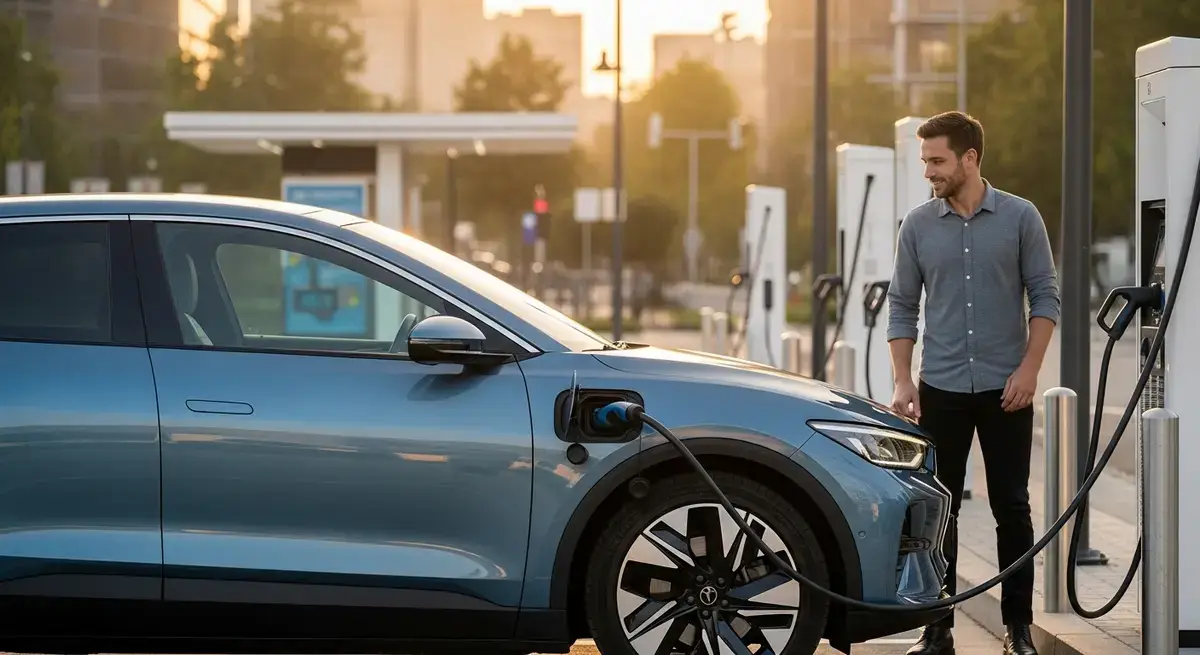
The pros and cons of buying an electric vehicle today
Considering an electric vehicle in 2025? Discover key insights on cost savings, charging options, driving range, and eco-benefits to make a smart, informed EV purchase decision today.
What You Need to Know Before Buying an Electric Vehicle in 2025
Electric vehicles (EVs) have gained incredible momentum in recent years, thanks to advances in technology, growing environmental awareness, and shifting consumer tastes. As 2025 unfolds, it’s more important than ever to take a clear-eyed look at both the perks and challenges of owning an EV today. Whether you're considering cost, charging options, driving range, or eco-impact, understanding these factors will help you make a well-informed decision.
Why Buying an Electric Vehicle Makes Sense Today
Save Big on Fuel and Maintenance Costs
Electricity is generally much cheaper than gasoline, leading to substantial savings at the pump. Many EV drivers report saving hundreds of dollars every year just on fuel alone. On top of that, maintenance costs for EVs tend to be lower—averaging around $500 annually—compared to roughly $900 for traditional gas-powered cars. This difference adds up, especially over several years.
Drive Cleaner and Greener
Electric vehicles produce zero tailpipe emissions, making them a powerful tool in reducing air pollution and fighting climate change. For eco-conscious drivers, this is a major selling point. Plus, many governments offer attractive incentives like tax credits and rebates that can significantly lower the upfront cost of switching to electric.
Cutting-Edge Technology Boosts Convenience and Performance
Thanks to rapid improvements in battery tech, EVs now offer longer driving ranges and faster charging times. For example, the Toyota Mirai impresses with a range of up to 402 miles on a single charge. Beyond range, electric cars deliver instant torque and smooth acceleration, often rivaling or surpassing the performance of luxury vehicles.
Growing Charging Networks Reduce Range Anxiety
The expansion of charging stations, especially in urban areas, has made owning an EV far more convenient. More chargers mean less worry about running out of battery. Fast-charging options now let drivers recharge in under 30 minutes, making quick stops easier than ever.
What to Consider Before Taking the Electric Leap
Higher Upfront Price Tags
One of the biggest hurdles with EV ownership is the initial purchase cost, which is typically higher than that of traditional vehicles. This can be a dealbreaker for some buyers. Additionally, battery replacements can be expensive—sometimes reaching up to $16,000—so it’s important to factor in long-term ownership costs.
Range and Charging Realities
While many EVs boast impressive mileage, real-world conditions like towing or carrying heavy loads can reduce range significantly. Charging still takes longer than filling up a gas tank, with fast charges often requiring 30 minutes or more. For some drivers, this may affect daily convenience, especially on long trips.
Battery Life and Vehicle Longevity
Over time, EV batteries gradually lose capacity, which can impact performance. Although many manufacturers provide warranties covering battery health, variations exist depending on usage and mileage. Questions remain about the long-term reliability of EVs as they age, so potential buyers should be mindful of this when planning for the future.
How the EV Market Looks as We Near the End of 2025
Rapid Growth and More Choices
Electric vehicle sales continue to climb, with market share expanding steadily. This surge means consumers now have more options than ever, from established automakers to innovative newcomers. The growing variety allows buyers to find EVs that better suit their specific needs and budgets.
Expanding Charging Infrastructure Enhances Usability
Charging stations are popping up across cities and rural areas alike, bridging previous gaps in accessibility. The rise of fast-charging networks is especially important, making long-distance travel in an EV more practical and less stressful. These developments are laying the foundation for a more convenient and widespread electric driving experience.
Deciding whether to buy an electric vehicle in 2025 involves balancing impressive cost savings and environmental benefits against higher upfront prices and some practical limitations. By considering your lifestyle, driving habits, and budget, you can determine if an EV is the right fit for you. Feel free to share your own experiences or questions about electric vehicles in the comments below!

Keira Dunn
Keira is an expert in data-driven advertising. She specializes in pay-per-click (PPC) campaigns and conversion rate optimization, writing for marketers who want to maximize their return on investment and master the technical side of digital ads.
More Related Posts

Protecting your car from the harsh Scandinavian climate
As winter's icy grip tightens over Scandinavia, your car faces a battle against frigid temperatures, relentless snow, and unforgiving winds. But fear not! With the right strategies, you can shield your vehicle from the harsh elements and keep it running smoothly year-round. Discover essential tips on insulation, maintenance, and protective gear that will not only prolong your car's life but also ensure those frosty mornings are a breeze. Ready to unlock the secrets of winter car care? Read on!

The pros and cons of buying an electric vehicle today
Considering an electric vehicle in 2025? Discover key insights on cost savings, charging options, driving range, and eco-benefits to make a smart, informed EV purchase decision today.

Simple car maintenance tasks you can do yourself
Take control of your car’s health with easy DIY maintenance! Learn essential tasks like oil changes, fluid checks, tire care, and battery swaps to boost reliability, safety, and savings.

How to choose the right tires for your vehicle and climate
Master the art of choosing the perfect tires by understanding size, load, and speed ratings. Tailor your choice to climate and driving style for safer, smoother rides year-round.
